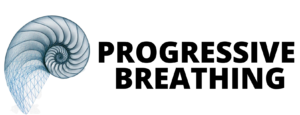The Detriments of Chronic Mouth Breathing: Tetany and Oxygen Deprivation
Chronic mouth breathing can have profound negative effects on the body, one of the most critical being oxygen deprivation, which can lead to a condition known as tetany. While mouth breathing is often an unconscious habit formed due to nasal blockages, stress, or poor posture, it significantly alters the body’s ability to regulate oxygen and carbon dioxide levels, leading to a cascade of harmful physiological effects.
How Chronic Mouth Breathing Causes Oxygen Deprivation
When you breathe through the mouth, you bypass the natural filtration, humidification, and regulation that nasal breathing offers. Nasal breathing not only filters out harmful particles but also promotes the production of nitric oxide, which dilates blood vessels and optimizes oxygen absorption. Mouth breathing, on the other hand, causes a less efficient exchange of gases in the lungs.
One of the key problems with chronic mouth breathing is the imbalance between oxygen and carbon dioxide (CO2) in the body. Breathing through the mouth tends to cause shallow, rapid breathing (hyperventilation), which expels too much CO2 from the bloodstream. Despite CO2’s reputation as a waste product, it is essential for maintaining the pH balance of the blood and for the proper release of oxygen to the tissues (via the Bohr effect). When CO2 levels drop too low, the oxygen bound to hemoglobin in the blood cannot be released efficiently, leading to oxygen deprivation at the cellular level.
This reduction in available oxygen can result in a range of symptoms, including fatigue, poor concentration, and decreased physical performance. Over time, the chronic lack of oxygen can lead to more severe health issues, including the development of tetany.
Tetany: A Direct Consequence of Hyperventilation
Tetany refers to involuntary muscle cramps, spasms, or tremors caused by electrolyte imbalances, particularly involving calcium and magnesium, often triggered by abnormal breathing patterns like hyperventilation. Chronic mouth breathing, by causing CO2 deficiency, disrupts the delicate balance of these electrolytes in the body.
CO2 plays a crucial role in maintaining calcium ionization. When CO2 levels drop due to hyperventilation, calcium ions become less available to the muscles, nerves, and other tissues, leading to heightened excitability of the nervous system and muscle fibers. This increased excitability manifests as tetany, with symptoms such as:
- Muscle cramps and spasms, especially in the hands, feet, and face
- Tingling or numbness in extremities
- Involuntary muscle twitching and tremors
- In severe cases, laryngospasms (spasms in the vocal cords) or seizures
The chronic depletion of CO2 through mouth breathing makes the body more prone to these painful and sometimes dangerous muscle contractions.
Wider Effects of Oxygen Deprivation on the Body
Oxygen deprivation caused by mouth breathing doesn’t just affect the muscles; it has a systemic impact on the body:
- Reduced Cellular Function
Every cell in the body depends on oxygen to generate energy through cellular respiration. When oxygen delivery is compromised, cells cannot function optimally. This affects everything from brain activity to muscle performance. Over time, oxygen deprivation can lead to chronic fatigue, reduced immunity, and impaired organ function.
- Impact on the Nervous System
The brain, which uses about 20% of the body’s oxygen supply, is especially sensitive to oxygen deprivation. Chronic mouth breathing can impair cognitive function, resulting in brain fog, poor memory, and difficulty concentrating. Additionally, the nervous system becomes hyper-excitable, increasing the likelihood of anxiety and panic attacks.
- Acid-Base Imbalance (Respiratory Alkalosis)
Chronic mouth breathing and hyperventilation cause respiratory alkalosis, a condition where the blood becomes too alkaline due to excessive CO2 loss. This imbalance can lead to a range of symptoms, including dizziness, confusion, and lightheadedness, as the body’s ability to regulate pH diminishes. Over time, this can contribute to osteoporosis due to reduced calcium availability.
- Worsening of Respiratory and Cardiovascular Health
Chronic mouth breathing can exacerbate conditions like asthma, sleep apnea, and hypertension. Reduced oxygen intake and poor CO2 regulation strain the heart and lungs, increasing the risk of high blood pressure, heart disease, and other cardiovascular issues.
Brief Overview
Chronic mouth breathing profoundly affects the body’s ability to regulate oxygen and carbon dioxide levels, leading to a state of oxygen deprivation and increasing the risk of tetany. The depletion of essential CO2 disrupts electrolyte balance, resulting in muscle spasms and neurological symptoms. Over time, the lack of adequate oxygen delivery can impair cellular function, cognitive performance, and overall health. Addressing mouth breathing through corrective techniques like nasal breathing can restore this balance, preventing the detrimental effects of oxygen deprivation and promoting optimal well-being.
Experiment with 3 Free Nasal Breathing Practices to prevent Tetany or Oxygen Deprivation.
Improve Oxygen Flow through Intelligent Movement & Exercise.



